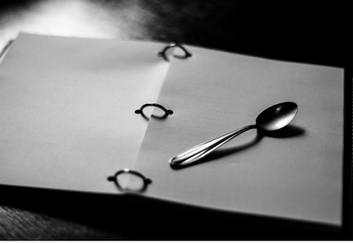Jill Katz
One to Zen Organizing
June 7, 2021
Do you ever wonder why some days you are flying through your tasks while other days you are slogging along? Lately, I have been reading up on The Spoon Theory and I believe we can all learn a thing or two about productivity from this insightful concept.
The Spoon Theory - A Story
The Spoon Theory was invented in 2003 by Christine Miserandino who wrote a story detailing a conversation she had with her best friend about coping with Lupus, a chronic illness. I will summarize the story but I urge you to read the original short story yourself.

In the story, Christine is in a diner and her best friend urges her to share her experience about living with Lupus. After some consideration, Christine asks her friend to grab 12 spoons from the surrounding tables. She explains that these spoons represent her total energy for the day. Christine challenges her friend to go through a pretend day and make choices about how to use her spoons. She takes away spoons for waking up, getting dressed, and making breakfast. By the time her friend is talking through starting her workday, she is only left with six spoons. Five more spoons were used during the workday for standing at her computer, taking public transportation and skipping lunch. By evening, her friend had only one spoon left and had to spend it wisely. Christine shared with her friend that she never has enough spoons so she must make some hard choices about what to give up. For example, having a meal with a friend might mean that she doesn’t have energy to pay her bills or take a shower.
Understanding Those With Chronic Illness

I spoke with my friend Atara about The Spoon Theory. Atara lives with a chronic illness called Dysautonomia so I was curious to hear how she related to these ideas about energy. Atara described what it felt like to not have enough energy to accomplish her daily tasks:
“I am budgeting energy instead of money and I have under-resourced funds to spend. It is fear-based: I don’t want to overdo things today and then I can’t move tomorrow. ” She also spoke about judgement. “There is an expectation by yourself and others to be successful. You have to recognize what it’s like to be you and create your own set of standards.”
Over the past year, Atara has been feeling much better and I asked her if she still thinks about her energy as spoons. She replied, “I remember that just because I can, doesn’t mean it’s good for me. So I still prioritize my day, pushing off things that can wait. If I don’t overextend myself then I can count on having enough spoons tomorrow. That consistency is very important to me.”
The Autistic Community & Other Adopters
I actually first heard about The Spoon Theory from the autistic community. My daughter has Asperger’s, a form of High Functioning Autism, and I often look to this community to explain some behaviors that I don’t understand. For example, my daughter might have a day where by midday, she is utterly exhausted. At first, I was perplexed by this phenomenon, but when I applied The Spoon Theory, it all made sense. Certain activities such as socializing and taking a shower can tax her energy, even if she enjoys these experiences.For example, she loves her friends but attending to all the social cues and loud noises can cost her many spoons. What teenager would choose schoolwork over hanging out with friends at the mall? But hanging out with friends will often drain her of energy for anything else and she will collapse in bed, unable to even show up at the dinner table.r which activities to sacrifice in order to have enough spoons for another. For example, in order to conserve her energy for work, she might have to pass on dinner with a friend.
How Does the Spoon Theory Apply to You?

I have explained how The Spoon Theory works if you have chronic illness, autism, or mental health diagnoses. But what about the rest of us? Here are some takeaways that I would like to share with you:
Show Compassion & Empathy for Others
We must realize that others have different needs and different ways of distributing their energy.
Recognize That We Are All Neurodiverse
We are all individuals with our own set of needs. Giving ourselves extra grace for tasks that drain our energy can only make us more productive in the long run.
Pace Yourself
You know that saying: “Life is a marathon, not a sprint.” Overexerting yourself in the short term, can be devastating in the long run. Physical overexertion can lead to a muscle injury. Mental exertion can cause burnout or depression. One way or another, our body will communicate to us that it is time to rest.
Weigh Tasks by Quality and Not by Quantity
Look at your day and strategize. What drains your energy? What gives you energy?
In Conclusion
In her story, Chrisitne Miserandino tells her friend: “Don’t worry. I see this as a blessing. I have been forced to think about everything I do. Do you know how many spoons people waste everyday? I don’t have room for wasted time, or wasted “spoons” and I chose to spend this time with you.”
How do you choose to spend your time? Will you apply The Spoon Theory to your life?
For more information, contact Jill Katz